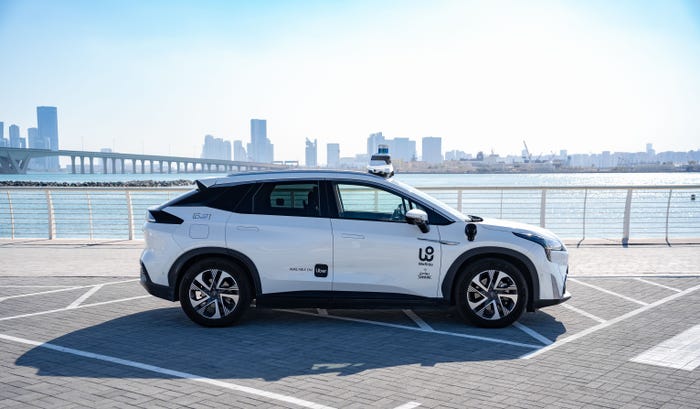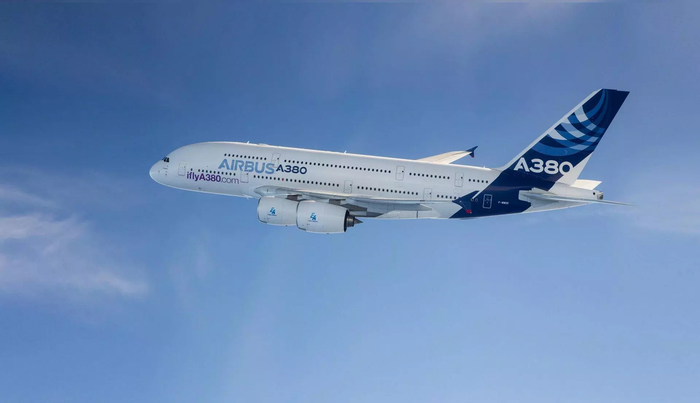Baidu to Expand Its Self-Driving Taxis Beyond China
The company’s robotaxi operation is looking to expand into Hong Kong, Singapore and the Middle East
.jpeg?width=1280&auto=webp&quality=95&format=jpg&disable=upscale)
Baidu is looking to expand its Apollo Go self-driving taxi service outside of China.
The Chinese Internet giant’s robotaxi operation has gained significant traction in its homeland, and now it is looking further afield, with the unveiling of Tesla’s long-awaited self-driving cab expected to intensify competition in the sector globally.
Sources familiar with Baidu’s intentions told the Wall Street Journal that it is eyeing up possible moves for Apollo Go into the likes of Hong Kong, Singapore and the Middle East.
Baidu is already claimed to have held discussions with companies and regulators in these regions.
For more self-driving vehicle and other embedded tech news subscribe to our free newsletter
The Beijing-based firm’s ambitions should come as no surprise, as it has made no secret of its desire to become the leading player in the self-driving taxi arena. At its Apollo Day in 2022 it revealed a plan to roll out the world’s largest fully driverless ride-hailing service, and it has continued to scale in China since then.
It’s active in a number of locations, with fully driverless rides available in the likes of Beijing and Shenzhen, but the central city of Wuhan has emerged as its key hub. In August it confirmed it was running a fleet of more than 400 autonomous taxis there – the largest in the country – which contributed to the near 900,000 rides it provided nationally in the second quarter of 2024.
Baidu also launched China’s first autonomous ride-hailing service at an airport in Wuhan in 2023.
Much of the company’s bullishness stems from the recent launch of its RT6 self-driving taxi, which costs around 200,000 yuan (currently the equivalent of $28,300) to produce, half of what its predecessor did. This has sparked hope that Apollo Go will turn a profit in 2025, which would make it the world’s first autonomous ride-hailing operation to do so.
However, Baidu is not alone in targeting expansion outside of China as interest in self-driving taxis ramps up.
In 2023, WeRide was granted a license to test its AVs, including taxis, across the entire United Arab Emirates – the most wide-ranging permit of its type ever issued. The Guangzhou firm signed a deal with Uber in September that will see its self-driving cabs made available on the platform in a number of countries, starting in Abu Dhabi in the UAE in 2025.
Although based in China, WeRide wants to go public in the United States, although its IPO has been delayed.
Pony.ai, meanwhile, is said to be considering operations in Europe, South-East Asia and Singapore, where it signed a memorandum of understanding with a local taxi operator earlier this year as it looks to launch a service.
However, one country any self-driving taxi that features China-developed software will find difficult to launch in is the United States, following the move by the Biden administration earlier this year to ban them from U.S. roads, on account of security concerns.
Read more about:
AsiaAbout the Author
You May Also Like








